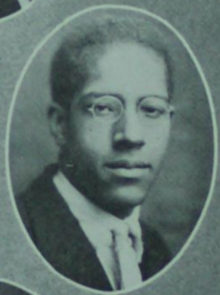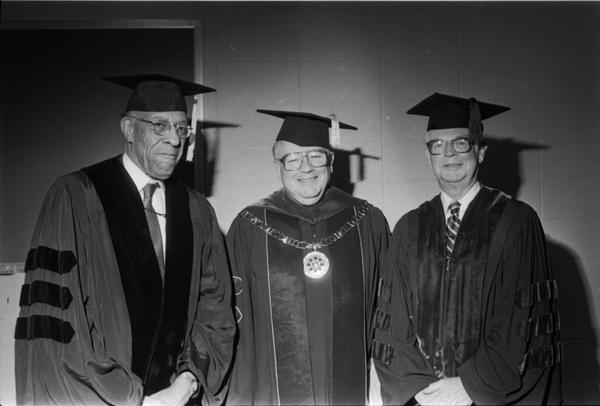
A trailblazing scientist and professor with an accomplished career spanning over 60 years, Dr. Halson Vashon Eagleson was dedicated to challenging the minds of his students and encouraging them to exceed their intellectual expectations of themselves.
Born in Bloomington, Indiana in 1903 to a family that redefined the professional and academic potential for Black scholars in America, Dr. Eagleson began his own remarkable story at Indiana University, graduating with a BA in 1926 and a MA in 1931. He was awarded a Ph. D in Physics in 1939, and his doctoral dissertation was on the subject of acoustics, entitled, “The Influence of Certain Atmospheric Conditions upon Sound Transmission”.
Dr. Eagleson began his teaching career at Morehouse College. Afterwards, he was jointly appointed as a professor of physics at Morehouse and Clark Colleges. Starting in 1947, Dr. Eagleson served for 24 years as a professor of physics, and later as department chairman, at Howard University. During his tenure at Howard, he made fundamental improvements to the Physics Department and educated generations of scientists on not only introductory physics, but the physics of acoustics and the behavior of sound.
Dr. Eagleson also worked at the National Science Foundation’s summer institutes across the American south. His reputation as a scientist and professor facilitated opportunities for service throughout his career, including as a member of the Ford “Future Scientists of America” Awards Program selection panel, a critic for the Educational Testing Service physics tests, a contributor to the advanced engineering section of the Graduate Record Examination, a councilor of the Society of Physics Students, and an examiner of physics applicants to the University of London. Dr. Eagleson also was an adept scientific author, with publications in numerous scientific journals throughout his career.
Concurrently to his contributions to the physics of acoustics, Dr. Eagleson was proficient in a variety of instruments, from the piano and saxophone to the violin and clarinet. He performed in string bands to finance his education and was the first Black individual at Indiana University to earn an “I” letter in marching band. The latter accomplishment was even more remarkable due to a traumatizing experience that preceded it. Before the IU marching band left for Lafayette for the Indiana vs. Purdue football game, Eagleson was kidnapped by 3 white students allegedly associated with the Ku Klux Klan, and held captive. Unfortunately, the case ended with a hung jury and the kidnappers did not face judicial consequences. While this crime prevented Eagleson from playing at that football game, it did not prevent his musical prowess from being recognized by Indiana University with the presentation of an “I” letter.
He advised Bell Telephone Laboratories in their development of educational scientific instruments, and was also a consultant for the Environmental Protection Agency to reduce noise pollution, where he conducted a preliminary study to measure the “loudness” of high-crime, Black neighborhoods in comparison to low-crime, more affluent neighborhoods in Washington, DC. The results of his decibel measurements demonstrated the densely-populated, Black areas of the city and high-crime areas of the city were actually quieter than the low-crime, higher-income areas of the city.

Among his many accolades, Dr. Eagleson notably received a distinguished service citation from the American Association of Physics Teachers, membership to Howard’s chapter of Sigma Pi Sigma National Honor Society of Physics, and election to Sigma Xi, an honorary scientific association, which had hitherto not granted membership to Black scientists. In 1948, he became president of the National Institute of Science, a distinguished national organization that serves historically Black colleges and universities. In 1985, Dr. Eagleson received an honorary degree from Indiana University.
After his retirement from Howard University in 1963, Dr. Eagleson served as an adjunct Professor of Physics at University District of Columbia and the University of Maryland, where he continued to supervise graduate students until 1989, shortly thereafter passing in 1992.
Dr. Halson Vashon Eagleson came from a Bloomington family with strong IU academic traditions and made his way as a compassionate professor and mentor. He made a profound impact on not only his students and colleagues, but on future generations of scientists as an exemplum of scientific and academic excellence.


 The College of Arts
The College of Arts